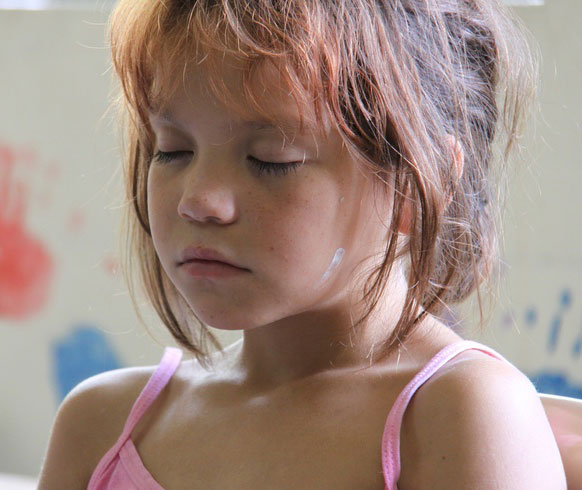Autism Spectrum
Transcending autism (video 3:52)

Effortless, Drug-Free Therapy Helps Children with Autism
As an addition to traditional treatments, 10 minutes twice a day of Transcendental Meditation (TM) has been shown to help some children manage the condition. It may also help children who have varying degrees of social, communication, and behavioral challenges.
TM for Children With Autism
According to the Centers for Disease Control and Prevention, one in 88 children has an autism spectrum disorder (ASD). Some symptoms can be treated with medication, but many parents prefer non-drug therapies, said Kathleen Angkustsiri, MD, a developmental-behavioral pediatrician at the University of California, Davis, MIND Institute in Sacramento.

Dr. Angkustsiri said she would encourage parents to discuss alternative therapies, including meditation, for their children with autism with their healthcare providers. A UC Davis MIND study found that parents of children with autism do use alternative and complementary therapies more often than parents of children diagnosed with other developmental delays, she said.
To practice Transcendental Meditation, a technique based on an ancient Indian tradition, you sit in a comfortable position with your eyes closed and silently repeat a sound or mantra that you learn from your teacher. "TM allows the mind and body to automatically settle down to a state of restful alertness," said Bob Roth, executive director of the David Lynch Foundation and a longtime TM teacher.
TM works well in conjunction with other medications and therapies your child may be given for treatment of autism. "Your child may not need as much medication, but TM is not a replacement for medical treatment," Roth said. "It's up to your child's doctor whether to reduce medications."
Roth encouraged parents of children with autism to learn Transcendental Meditation themselves so that they can practice together. "It's a wonderful thing to share," he said, adding that just 10 minutes in the morning and 10 minutes after school and before dinner should result in the child being less impulsive, less likely to act out, happier, and more focused. He said that children who practice TM also will sleep better at night. "Sometimes I start with just 5 minutes until the child gets more comfortable with it," Roth said.